African Books Collective - Timeline
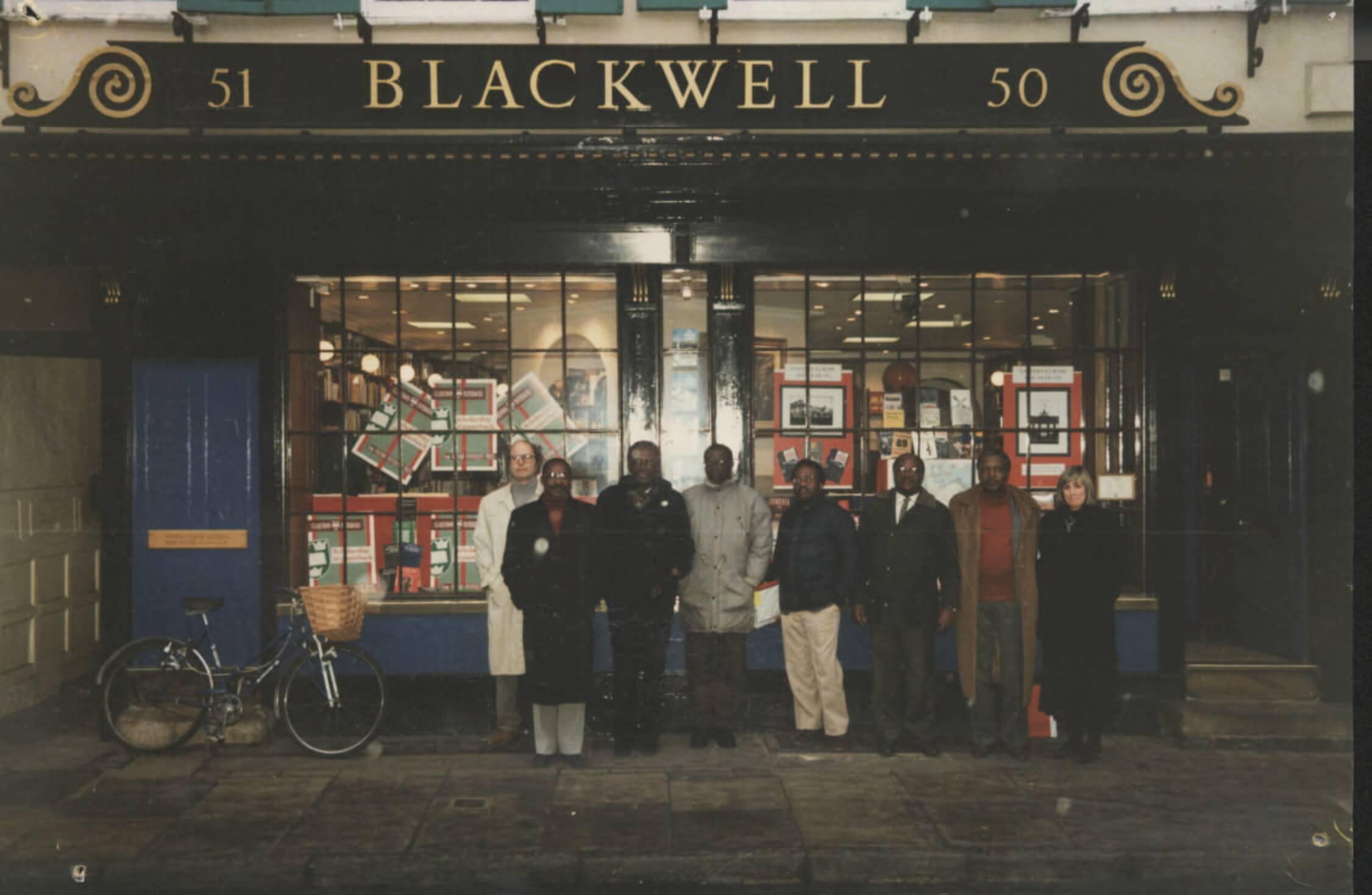
L-R: Hans Zell (ABC), the late Victor Nwankwo (Fourth Dimension Publishing), Ayo Bamgbose
(Ibadan University Press), Mamadou Diouf (CODESRIA),
Mothobi Mutloatse (Skotaville
Publishers), Henry Chakava (East African Educational Publishers), Walter Bgoya (Mkuki na Nyota
Publishers), and Mary Jay (ABC).
For images below, please hover your cursor to read the captions.
African Books Collective is 30 years old! It’s been an eventful few decades, and so we felt it was time to share a flavour of how the vision of a few passionate publishers, on the continent and beyond, led to the phenomenon that is African Books Collective. The Collective now numbers 150 African publishers from 22 countries, publishing everything from children’s books, political biographies, and queer poetry to climate science, religion, and linguistics. We even have Shakespeare in Igbo! Join us for a trip down memory lane at pivotal moments in our history – looking at the key debates we were engaged in during those times – arriving at where we are today. Click through to in-depth articles and photos from some of the Collective’s members. Enjoy – and please do share your thoughts and memories through our social media. We’d love to know what you think. Our intention is for this page to be an ongoing living document, so our wider community can contribute their memories and photos of ABC. If you have anything you would like us to consider for our chronology, please get in touch!
1960s
After independence from colonial powers, countries across Africa were keen to establish their own cultural and knowledge organisations. However, there were many structural challenges that would take – and in some instances continue to take – great efforts to overcome. Walter Bgoya of Mkuki na Nyota Publishers, Tanzania, and Mary Jay, former ABC CEO and current Director, look at the issues in ‘Publishing in Africa: From independence to the present day’.
1970s
1972 Walter Bgoya joins Tanzania Publishing House as Managing Director. Henry Chakava begins his publishing career at Heinemann Educational Books, which later becomes East Africa Educational Publishers.
1973 Hans Zell (then Editor at the Ife University Press in Ile-Ife, Nigeria, and Managing Director of the university’s bookshops in Ile-Ife and Ibadan) organises an Ife University-hosted international conference on Publishing and Book Development in Africa, resulting in the conference proceedings entitled Publishing in Africa in the Seventies published by Ife University Press.
1976 Henry Chakava becomes Managing Director of Heinemann Educational Books. After starting as a net importer of UK books, Heinemann begins local production, growing a varied list, including indigenous language books.
1980s

Interest in African scholarship and cultural production grows. Books by Africans, from Africa, and about Africa are increasingly in demand. Along with former Heinemann Managing Director, Bob Markham, Henry Chakava sets up Tinga Tinga, which focuses on African books. The model involves reviewing the Kenyan catalogue, selecting books that would be of interest to a global audience, shipping and stocking them in the UK for global distribution. Despite a slow uptake, it is hailed by those who benefit, especially scholars.
1982 First BookWeek Africa, Africa Centre, London. In response to growing demand for African books, an exhibition of African-published books and journals is held: ‘Printed & Published in Africa’.
1983 Zimbabwe International Book Fair. The material from the London BookWeek Africa 1982 exhibit is shipped to Zimbabwe to form the centrepiece of an exhibition, during the first Zimbabwe International Book Fair (ZIBF).
Later, by the early 1990s, ZIBF becomes a vibrant annual meeting place for African publishers, including African Books Collective (ABC), and international publishers, with the backdrop of a flourishing Zimbabwean publishing industry, particularly in the literary sphere. Partnerships and co-publishing follow, and the annual Indabas debate issues around all aspects of independent African publishing. ABC connects with publishers, is informed by the Indabas, and monitors how its work can progress.
1984 In April, Walter Bgoya works with the Dag Hammarskjöld Foundation as a Co-Director of the first Arusha, Tanzania, conference on ‘The Development of Autonomous Publishing Capacity in Africa’. Their findings note,
“The majority of publishing houses serving Africa [were] not autonomous. The publishing field [was] dominated by the branches of transnational publishing corporations, all but a few controlled from outside the continent, and by some state publishing houses, which [were] directly or indirectly controlled by governments.”
Mary Jay joins Hans Zell Publishers, African Studies specialists (also publisher of the quarterly African Book Publishing Record, and administrator of the Noma Award for Publishing in Africa). Hans Zell carries out Swedish International Development Cooperation Agency (SIDA) funded research and analysis in partnership with African publishers. African publishers identify an inability – because of structural constraints and international economic policies – to market and distribute books required in the countries of the North. At the same time, Hans Zell identifies problems in terms of demand from librarians in the North for African books. They examine possible solutions.
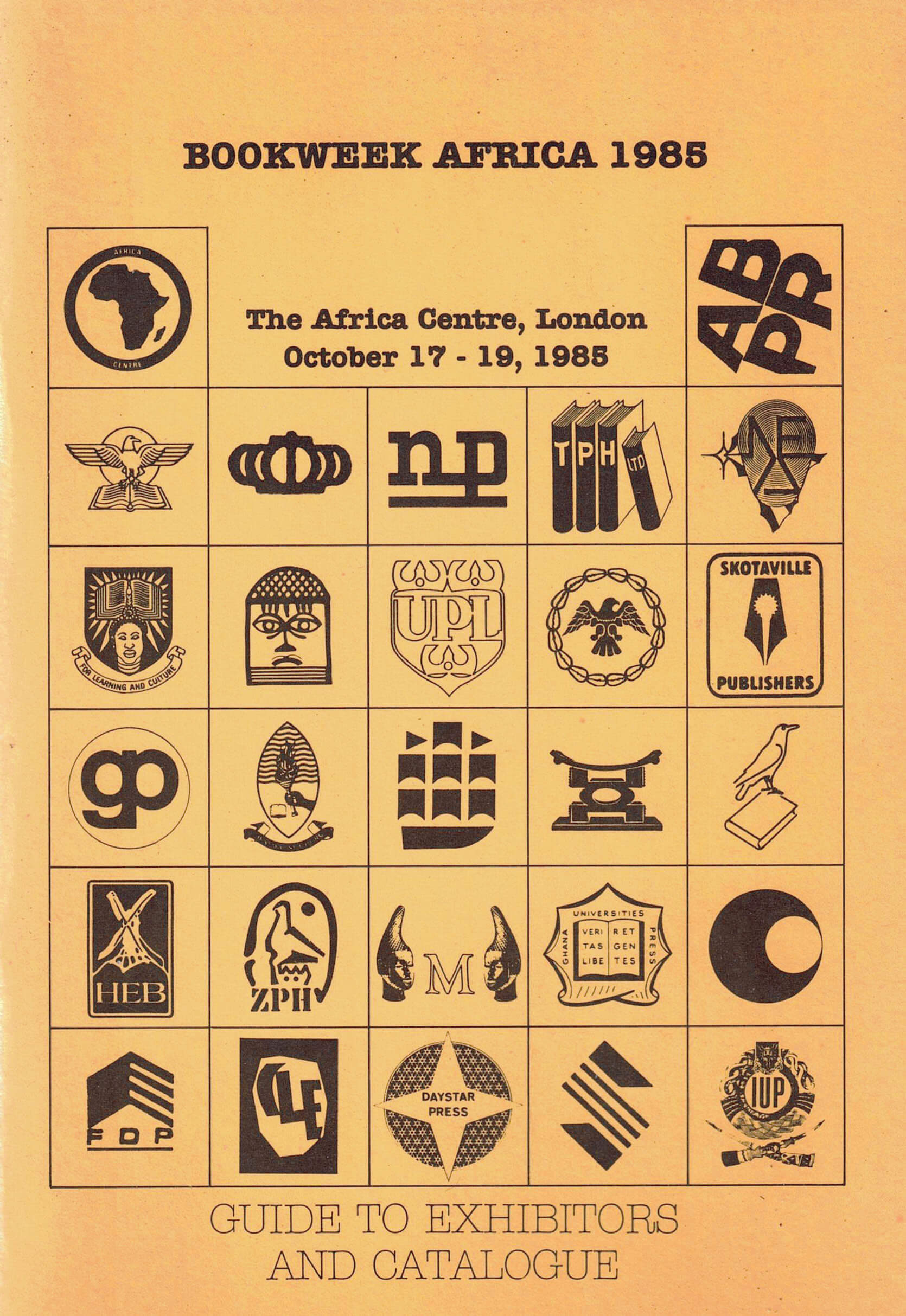
1985 Second Bookweek Africa, Africa Centre, London. Coinciding with this event, SIDA funds a seminar, ‘African Publishers Working Group Meeting on Collective Export Marketing and Promotion’, at the Grafton Hotel in London, with 12 publishers from across sub-Saharan Africa (Kenya, Nigeria, Senegal, South Africa, Tanzania, Uganda, and Zimbabwe) and Hans Zell Publishers. It includes Henry Chakava, the late Victor Nwankwo, Walter Bgoya, the late David Martin, the late Abiola Irele, and Muthobi Mutloatse, among others. During this week, the African Books Collective concept is formed: to market and distribute African published books to northern markets. The aim is to be collaborative, independent, and inclusive; above all, taking control of distribution and marketing, and ensuring Africa speaking for itself in international counsels. Oxford, already home to Hans Zell Publishers, is seen as the obvious location, as it is important to have an operations base in the intended market, and Oxford can serve as the headquarters to serve European and North American markets.
A representative group of founders, the Council of Management, will govern and set strategy for the non-profit. Although it is profit making on behalf of its publishers, it is non-profit making on its own behalf: a social mission and a commercial operation.
 1987 David Brooks and Akwe Amosu are appointed Directors of ABC as required by UK Company Law. ABC's database is
programmed by David who has extensive experience in the UK book trade. His programming knowledge is essential in setting-up ABC's
trading mechanisms.
1987 David Brooks and Akwe Amosu are appointed Directors of ABC as required by UK Company Law. ABC's database is
programmed by David who has extensive experience in the UK book trade. His programming knowledge is essential in setting-up ABC's
trading mechanisms.
The Dag Hammarskjöld Foundation invites Tanzanian publisher Walter Bgoya and Swedish professor Goran Hyden to organise a seminar on the
state and the crisis in Africa, looking at events, trends, and development potentials from an African, as opposed to Northern,
perspective. The debates are outlined in the subsequent Development Dialogue publication ‘Towards
a Second Liberation: Africa and the World Crisis’.
1988 In June, African Books Collective has its inaugural Council of Management meeting. It is attended by Walter Bgoya (Mkuki na Nyota Publishers), Henry Chakava (East African Educational Publishers), the late Victor Nwankwo (Fourth Dimension Publishing), Mothobi Mutloatse (Skotaville Publishers), Professor Ayo Bamgbose, a linguist and chair at that time of Ibadan University Press, Mamadou Diouf, the Senegalese historian (who attended on behalf of CODESRIA), Mary Jay, and Hans Zell. The council formulates strategy and determines policy areas, including legal and administrative structures, finance, marketing, and staffing. The focus is on international distribution outside Africa, although ABC can sell into Africa with publisher permission. As well as commercial work, ABC creates a programme of cultural activities, including publisher workshops, training exchanges, author tours, publisher attendance at international conferences and book fairs, internships, and books on African publishing.
1989 African Books Collective registers in the UK, with 17 founders who contribute £1000 each, along with donor funds from SIDA, Norwegian Agency for Development Cooperation (Norad), and The Ford Foundation. Later, the Rockefeller Foundation supports ABC, particularly on marketing. Over the years ABC is funded by Hivos, the Netherlands Ministry of Foreign Affairs, Danida (Danish International Development Agency), and Finnida (Finish International Development Agency). There are also small grants from the Commonwealth Foundation and Unesco.
ABC moves into The Jam Factory, Oxford. The building becomes a hub for the Oxford/African publishing and development environment, with organisations including the International Network for the Availability of Scientific Publications (INASP), the Bellagio Publishing Network, and CODE Europe.
1990s
1990 Hans Zell acts as a part-time consultant to ABC. Victor Nwankwo, Fourth Dimension Publishers, joins the Collective. He becomes, with both Walter and Henry, a driving force for the new organisation.
In May, ABC begins trading: marketing, promoting and selling books to global North markets. Books that are published and printed on the continent are sent from their respective African countries to Oxfordshire, from where they are mailed to book buyers.
 In addition, as a way to support book provision to African libraries, encourage the intra-African book trade, and
generate income for indigenous publishers, ABC supplies books through Book Aid International to the Intra-African Book Support
Scheme (IABSS). ABC starts the revolutionary IABSS because of the lack of international trade between African countries. With initial
support from a UK charity, literature and children’s books are sent to mainly African public libraries, who give a profile of books
needed, and donor funds ‘pay’ for the books and shipping. Recipients receive books from within African culture, from countries outside
their own. A scholarly books scheme, supplying to university libraries and academic institutions, is later added with initial funding from
the Swedish Agency for Research Cooperation. As Mary Jay explains,
In addition, as a way to support book provision to African libraries, encourage the intra-African book trade, and
generate income for indigenous publishers, ABC supplies books through Book Aid International to the Intra-African Book Support
Scheme (IABSS). ABC starts the revolutionary IABSS because of the lack of international trade between African countries. With initial
support from a UK charity, literature and children’s books are sent to mainly African public libraries, who give a profile of books
needed, and donor funds ‘pay’ for the books and shipping. Recipients receive books from within African culture, from countries outside
their own. A scholarly books scheme, supplying to university libraries and academic institutions, is later added with initial funding from
the Swedish Agency for Research Cooperation. As Mary Jay explains,
"There [was] little or no intra-African book trade... Hundreds of thousands of books were sent to Africa, contributing substantial revenue for ABC and the publishers... and supporting scholarly institutions. ABC later partnered with the UK charity Book Aid International, with 33 African publishing partners, and with a further 10 donors, before funding ended in 2004."
In his article ‘Africa—the Neglected Continent’ Hans Zell presents a gloomy picture of book publishing and book supply on the continent, and refers to the ‘bookless society’. He details ABC's structure and how it intends to meet the needs of African book publishers who want to sell their books and the libraries in the North that wish to acquire the books.
1991 In January, Oxford, the first full six-member Council of Management - the governing policy and strategy body - meets (members are elected from regions by founding members). Walter Bgoya is elected Chair (remains until retirement in 2017). The Council of Management governs strategy, finance, relations with donors and oversight of all documents and applications submitted, and the balance of work.
In February, the Rockefeller Foundation holds a conference in Bellagio, Italy on ‘Publishing in the Third Word’. Key ABC founders attend and present. Hans Zell presents on ‘African Publishing: Constraints and Challenges and the Experience of African Books Collective’.
Walter Bgoya leaves Tanzania Publishing House, and establishes Mkuki na Nyota Publishers, his independent publishing house.
One of the earliest publishers to join the collective is Malthouse Press, Nigeria, who publish to this day. Malthouse was formed by a group of Nigerian writers including the late Chukwuemeka Ike, and as well as publishing many greats, specialise in Nigerian law.
1992 Hans Zell publishes the 1991 Bellagio proceedings in Publishing and Development in the Third World, with co-editions published in Kenya and in India.
The African Publishers Network (APNET) is founded by African publishers from nine countries at a conference in Harare, Zimbabwe. Previously, publishers do not know exactly what their counterparts are doing elsewhere in Africa. Following conferences and seminars focused on solving the problems within African publishing and the book trade industry, stakeholders conclude that they need a networking umbrella body in order to gather and share information.
APNET’s headquarters are now in Accra, Ghana, hosted by the Ghana Book Publishers Association.
Association.
1994 In her Africa Bibliography paper, ‘African Books Collective: Its Contribution to African Publishing’, Mary Jay looks at the cooperative and collective solutions to the problems of publishing in Africa, particularly APNET and ABC.
First African rights Indaba takes place as part of the Zimbabwe International Book Fair.
Fountain Publications, Uganda, join the collective. Fountain are a major house with a wide ranging list covering history, long form journalism, literature, and scholarly books.
1995 Mary Jay becomes ABC CEO.
1996 The Arusha II conference takes place on ‘The Future of Indigenous Publishing in Africa’, organised by the Dag Hammarskjöld Foundation and Co-Director Walter Bgoya. It is held in Arusha, 25–28 March.
In November, the first Ghana International Book Fair (GIBF) takes place to revive the book industry in Ghana which is at a low ebb due to the serious economic recession of the late 1970s and 80s.
Subsequent fairs are held every two years from 1998 until 2008, when GIBF becomes an annual event.
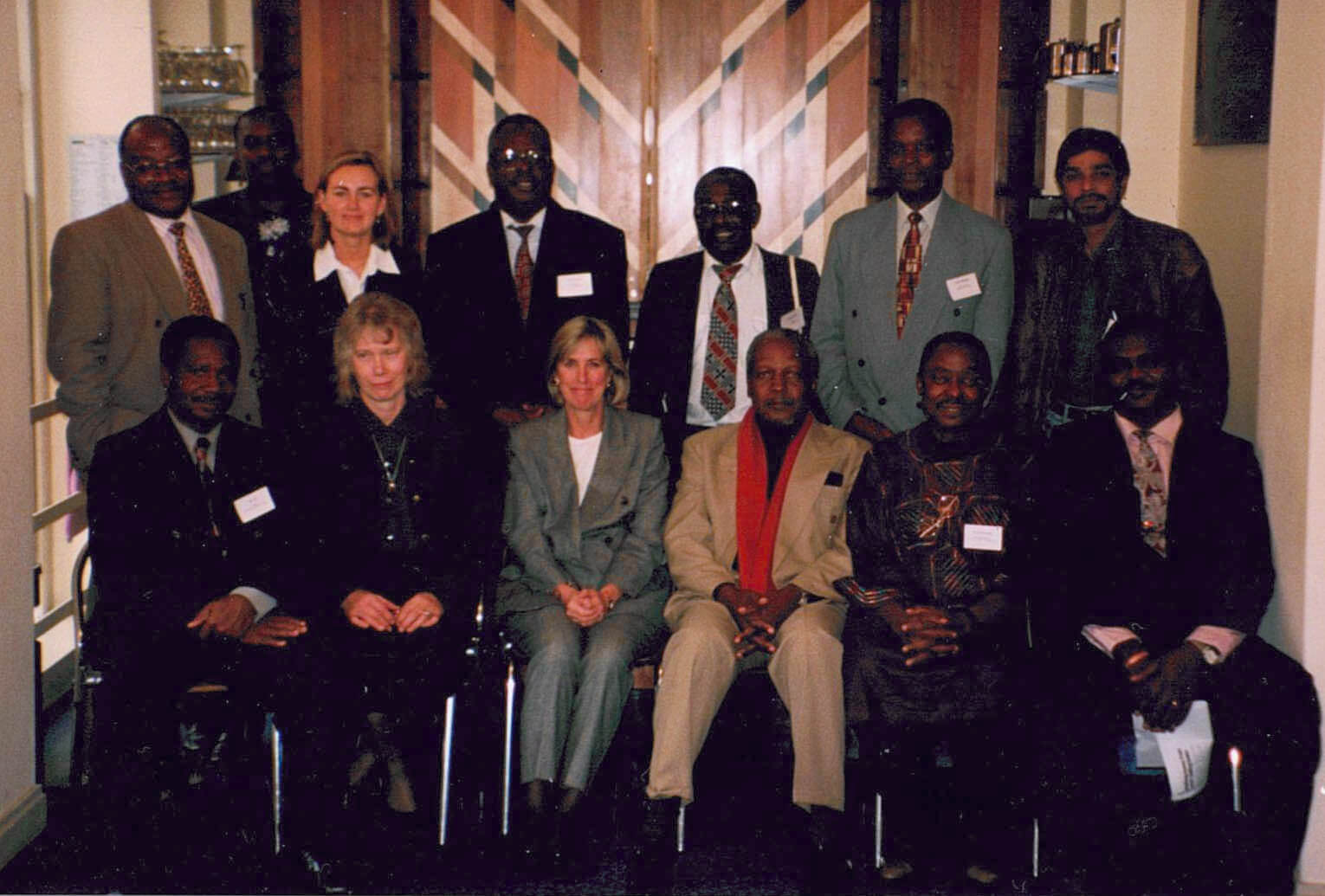
1997 ABC publishes Women in Publishing and the Book Trade in Africa: An Annotated Directory. In his paper ‘The Development and Future of Publishing in Africa: 12 Years after Arusha I’ Walter Bgoya looks at whether autonomous publishing capacity in Africa was enhanced since Arusha I, and what can and should be done to make African publishing commercially viable and responsive to the needs of a liberating education and culture.
Sub-Saharan Publishers, Ghana, run by Akoss Ofori-Mensah, joins the collective, specialising in high quality children's books and trade titles. Akoss Ofori-Mensah serves on ABC's Council of Management from 2002 to the present.
1998 ABC and the Dag Hammarskjold Foundation organise the Arusha III seminar on African Writers–Publishers in Tanzania. Major African writers and publishers hammer out a 'New Deal' for relations between the two and release the Arusha III Declaration: A ‘New Deal’ Between African Writers and Publishers. Expectations from both sides are outlined.
FEMRITE Publications join the collective. This Ugandan Women Writers collective initially releases East African novels and collections. FEMRITE are still active in Uganda, and have published several Africa-wide women writers' collections.
 In October, at a Council of Management meeting, ABC first discusses the possibility of digital books. Later, an exploratory workshop on
digital print technologies is arranged for 12 publishers, which is informative for understanding the possibilities and potential of
digital printing and POD, both for publishers and ABC. The Council decides that conversion should not be prescriptive, and should
instead be publisher-led. As the conversion project is costly, there are delays to accessing resources. But the decision is made early
on that this is where ABC’s future lies.
In October, at a Council of Management meeting, ABC first discusses the possibility of digital books. Later, an exploratory workshop on
digital print technologies is arranged for 12 publishers, which is informative for understanding the possibilities and potential of
digital printing and POD, both for publishers and ABC. The Council decides that conversion should not be prescriptive, and should
instead be publisher-led. As the conversion project is costly, there are delays to accessing resources. But the decision is made early
on that this is where ABC’s future lies.
1999 ABC publishes The African Writers’ Handbook, which builds on the Arusha III discussions. African writers and publishers contribute their experiences and perspectives on writing and publishing in Africa, and the guide provides practical guidance to creative writers.
Weaver Press, Zimbabwe, join the collective. Publisher Irene Staunton founded Weaver after time at Baobab Books, specialising in literature and scholarship from Zimbabwe, and publishing many greats of Zimbabwean literature. A particular highlight is their short story anthologies.
2000s
 2000 Positive evaluation from COWI
for SIDA
on ABC’s work:
2000 Positive evaluation from COWI
for SIDA
on ABC’s work:
"ABC plays a unique and vital role in being the most important commercial provider of African books in the north and thereby disseminating African culture and heritage in Europe and North America. If it ceases to exist, it will leave a major hole in terms of the availability of African books in the north… ABC is an unusually efficient mechanism for supporting African publishing. With total remittances to African publishers virtually equalling total donor contributions, the 'over-head' of the support is zero."
The Kachere Series join the collective. Specialising in Malwai, religion in Africa, and anthropology, publisher Klaus Fieldler goes on to form similar presses with Mzuni Press and Luviri Press. An early adopter of print-on-demand, Klaus Fieldler is one of the first publishers in the collective to use the technology to increase the research output in his area.
2002 Publisher Victor Nwankwo sets up a print-on-demand (POD) pilot with Lightning Source. One hundred titles are set up in the first instance to test the viability of a new approach to printing books – digitally sending book files to a printing company to print in smaller quantities than traditional print systems allowed.
ABC publishes Courage and Consequence: Women Publishing in Africa, which profiles 10 publishers, looking at their challenges, experiences, and successes.
Dag Hammarskjold, ABC, and INASP arrange Arusha IV: ‘Strengthening Scholarly Publishing in Africa’, a dialogue between scholars and publishers on the revival of interest in higher education and scholarship in Africa after a long period of neglect and decline. There is a new interest among African publishers in moving into scholarly publishing as new technologies make this more economically viable.
2003 ABC runs a POD workshop with publishers in Oxford. Publishers in attendance include CODESRIA, Fourth Dimension, Kachere, Malthouse, and Mkuki na Nyota.
In 20 01
ABC had conducted a market feasibility study, and signed an agreement in 2002 with Michigan
State University Press
to distribute titles from 2003.
01
ABC had conducted a market feasibility study, and signed an agreement in 2002 with Michigan
State University Press
to distribute titles from 2003.
2004 Intra-African Book Support Scheme ends in 2004 and is not renewed because of the absence of donor funds.
2005 Opifer conducts a mid-term review of ABC, noting that ABC, its founders, and its members are making a strong contribution to Africa’s future, and that the contribution deserves continuing support.
2006 400 titles available via print-on-demand. Although many publishers continue to send stock to the warehouse, others begin to try the new POD system, which then grows organically, with evangelising from ABC!
ABC publishes African Scholarly Publishing Essays, which builds on the Arusha IV discussions. It shares perspectives from scholars and publishers, as well as being a resource for scholarly writers and publishers and for the wider publishing community.
The Ford Foundation conducts its evaluation, 'African Books Collective, Ltd: Migrating to Self-Sufficiency'. Sida publishes its 'African Books Collective: Mid-term Review': “ABC is an initiative by African publishers to help themselves and their industry: as any commercial venture, it is a response to a market need. However, as well as being commercially relevant to publishing development in Africa, ABC’s non-commercial activities give it a strong cultural relevance as well.”
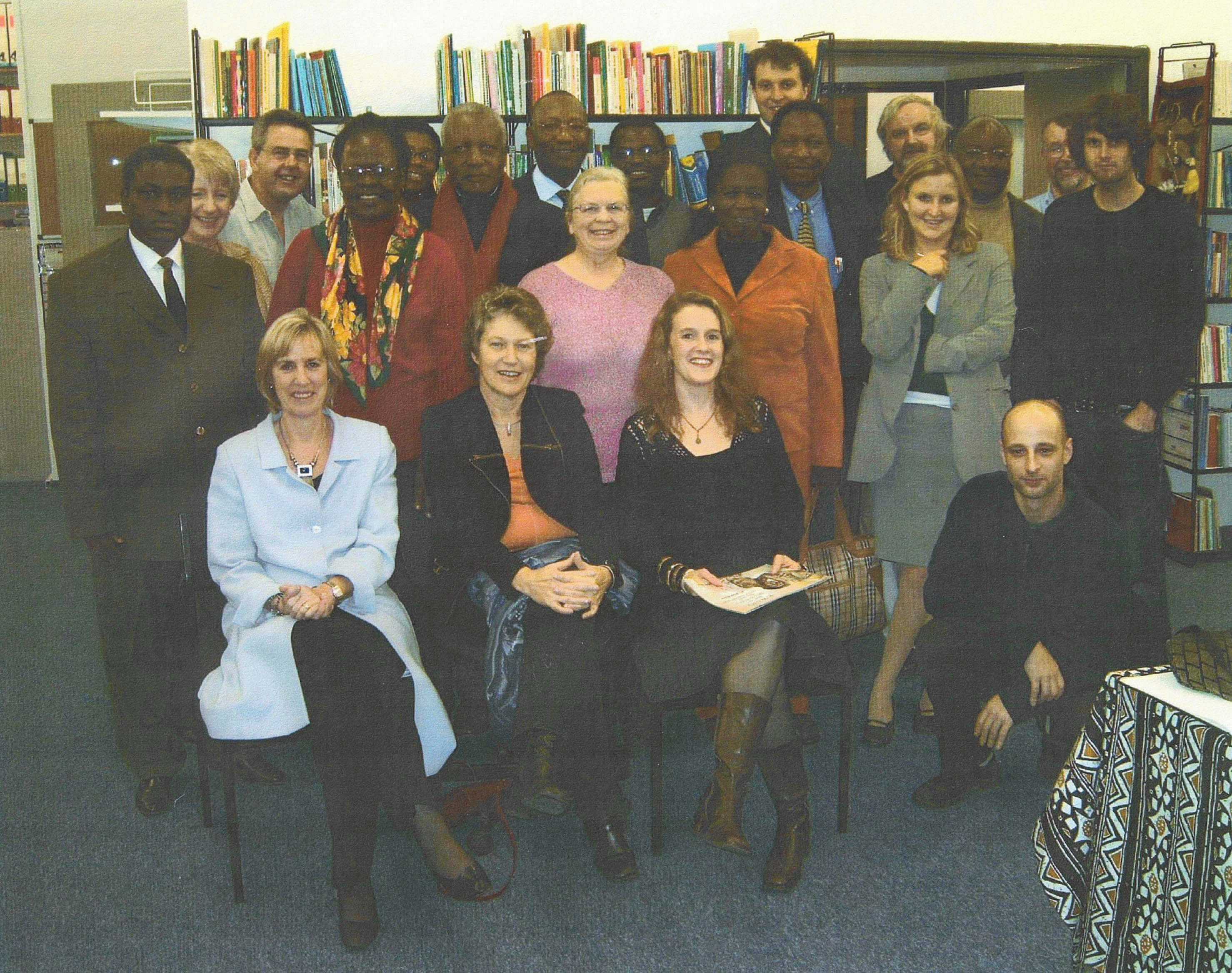
2007 Funding for ABC ceases, but it is a watershed moment in terms of self-sufficiency and a new digital model. However, it is unable to explicitly pursue its cultural mission as it will now proceed in a purely commercial sense. However, this lies at the core of ABC as evident from its achievements since founding (as noted in the COWI evaluation). Overheads are cut with redundancies, and ABC moves to a small office/warehouse. Staff redundancies are a sad necessity; ABC had been staffed by people with not only specific skills but also a commitment to the ideals of the nascent organisation, and consequently there had been little staff turnover over the years. Publishers also take a hit and remittances are dropped to 35% after years of generous remittances underpinned by donor funds.
David Brooks becomes ABC's Financial Director. He also programmes ABC's database to meet the requirements of ABC's POD and wholesale partners.
Langaa Research and Publishing Common
Initiative Group
(Langaa RPCIG), Cameroon, join the collective. A new press, Langaa bases its print and distribution model around ABC; and during years
of rebuilding, Langaa is able to provide the collective with increased numbers of new titles, which are critical to its development.
2009 ABC’s move to digitisation is recorded in a case study: 'The Lightning Source case study: African publishers use Lightning Source to bring their books to global markets'.
2010s
2010 Michigan State University Press had been appointed to distribute ABC books in 2003, but
with the advent of POD, it ceased to make sense to have a physical distributor, and so the arrangement ceased in 2010.
South African press African Minds join the collective. African Minds become the first publisher in the collective to commit to open access. Director Francois van Schalkwyk joins ABC's Council of Management in 2019.
Modjaji Books, South Africa, joins the collective. Modjaji, an independent feminist press run by publisher Colleen Higgs, introduces the large network of small and micro presses in South Africa to ABC, including Cover2Cover Books, impepho press, and Deep South.
2011 Justin Cox becomes CEO and Mary Jay becomes Director.
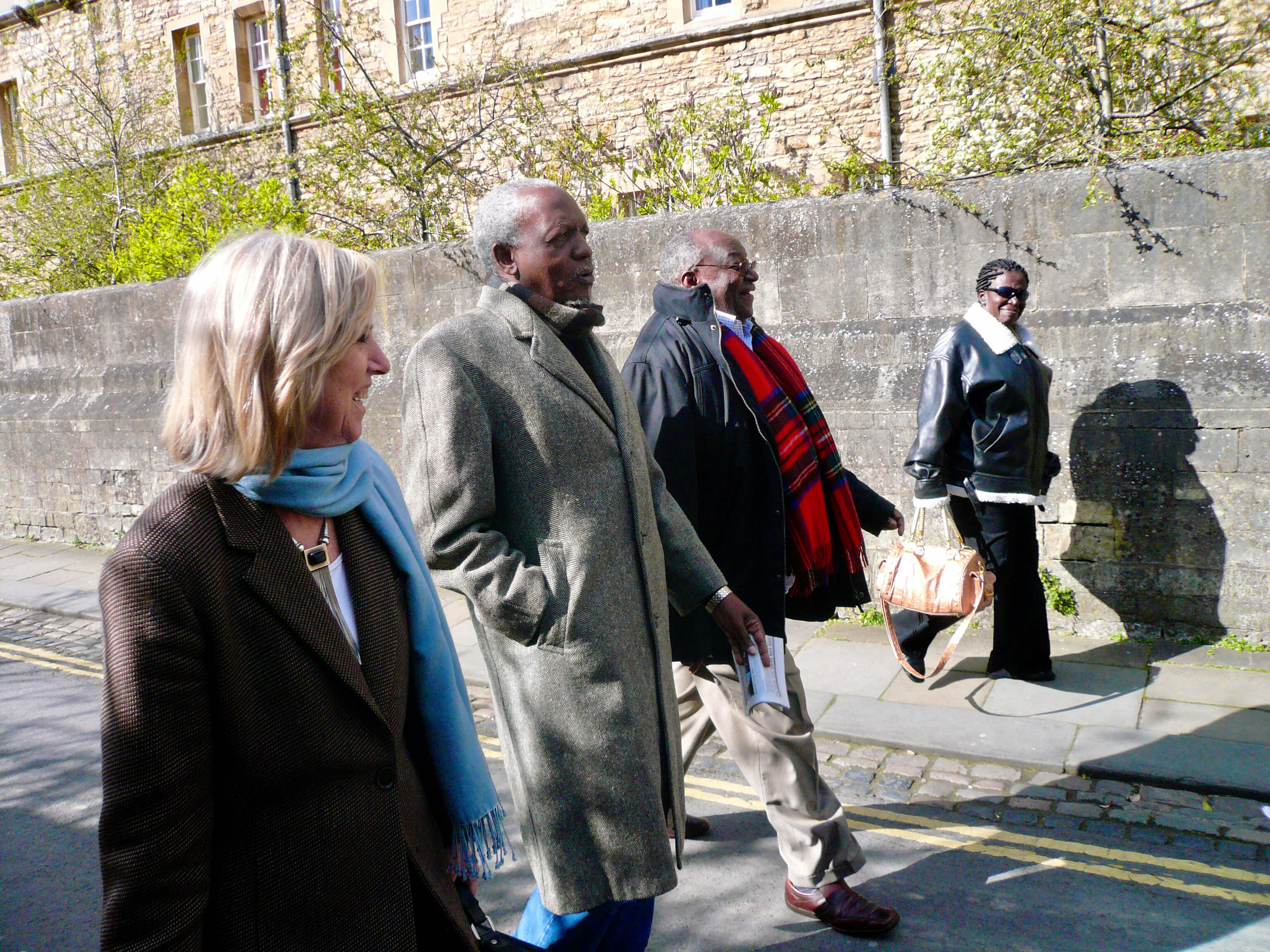
ABC signs with academic library aggregator Project MUSE for sales of digital content. The collective agrees more titles are required to make further moves on remittance levels, and works on strategies to encourage more books from existing publishers, and to be more attractive to new and upcoming presses.
2012 Income from ebooks more than doubles on 2011 after commercial deals bear fruit, and a 5% bonus is paid to publishers for sales. Although sales are down, publisher income increases due to improvements in ABC's model. Eight new publishers join the collective.
2013 ABC sales are record-breaking, turnover increases 8% and a 10% bonus is paid to publishers. Sales of digital content in largely academic markets more than double, and ABC further prioritises the conversion of African published books to digital formats.
2014 Six new publishers join ABC, bringing with them many new titles. However, sales are flat, so the collective resolves to look for growth in markets outside of the US and Europe. ABC launches a redesigned africanbookscollective.com.
ABC Chairman Walter Bgoya delivers the keynote address at the ASA UK conference in Brighton.
Walter Bgoya acquires the EBM (Electronic Book Machine) to print his own POD books, offering the printing service within Tanzania. A first by a commercial publisher in Africa.
2015 There is a big jump in new titles released, and 10 new publishers join the collective. Sales are also strong as more digital channels are added, but ABC is still cautious of sudden drops in a dynamic market place and opts to keep a steady financial platform.
ABC launches a sister site, Read African Books, to share news, reviews, and wider information on the book and publishing industry in Africa.
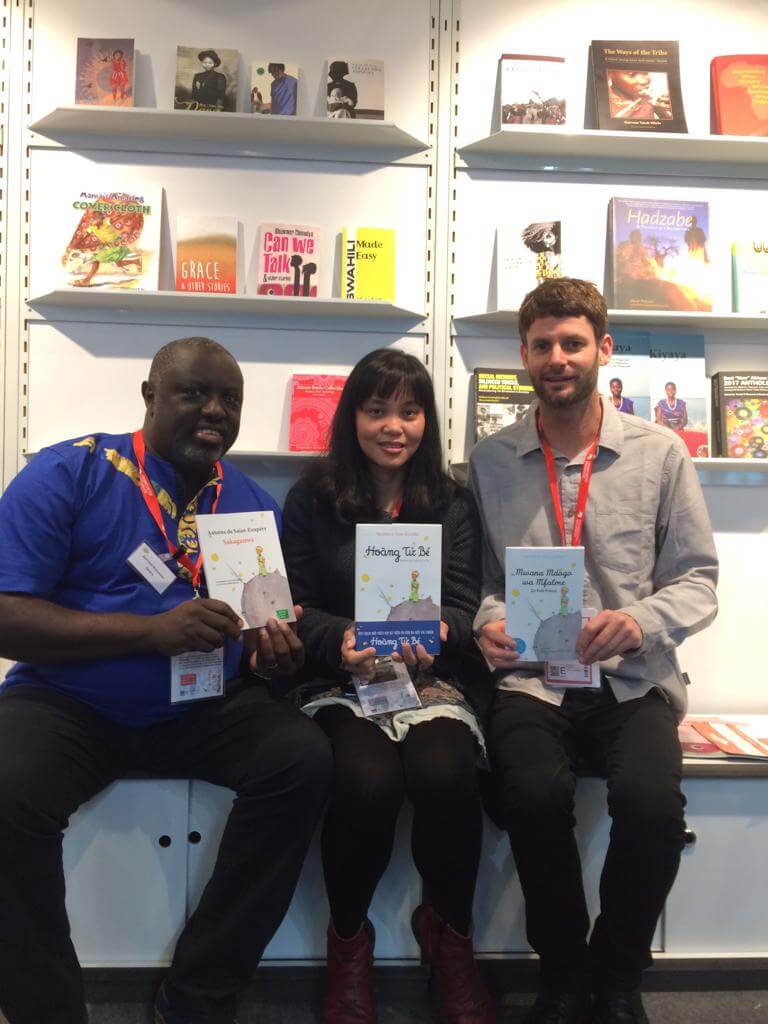
2016 Walter Bgoya, Henry Chakava, and Ayo Ojeniyi all retire from their positions on the ABC Council of Management to create space for younger publishers.
Mary Jay delivers the Adam Helms Lecture at Stockholm University, ‘African publishing in a globalised world’, on the topic of internationalism in publishing, particularly the challenges and opportunities for African publishers.
Ten new publishers join the collective.
2017 ABC records its best year ever and raises remittances to publishers to 45%. Sales from international markets bear fruit via ABC's wholesale deals, with growth in China, Germany, and South Africa.
Eight more publishers join the collective, and ABC start running profiles of the publishers it distributes on readafricanbooks.com.
Francois van Schalkwyk of African Minds Publishers, South Africa, is elected to the Council of Management. Kiarie Kimau, East African Educational Publishers, Kenya, and Tapiwa Muchechemera, Mkuki na Nyota Publishers, Tanzania, replace Henry Chakava and Walter Bgoya.
ABC registers as a not for profit.
Justin Cox talks about ABC's work in the academic space on University World News.
2018 ABC records another strong year as its global channels increase. Libraries all over the world start subscribing for access to ABC's digital collection.
Ten new publishers join the collective.
A big marketing schedule is undertaken with visits to the International Federation of Library Associations, Frankfurt
Book Fair,
and the CODESRIA General Assembly.
2019 ABC experiences a record year,
which sets the collective up on a steady financial platform for its ongoing evolution. Alongside new leadership on the Council of
Management, Stephanie Kitchen of the International Africa
Institute
becomes a Director of ABC.
Justin Cox is interviewed by the Digital Lab of the International Alliance of Independent Publishers.
Justin Cox and Stephanie Kitchen discuss African Books Collective, which for some 30 years has distributed African published academic, literary, and children’s books around the world, on the CIHA Blog.
Hans Zell publishes 'Publishing in Africa: Where are we now? An update for 2019'.
2020s
 2020 ABC celebrates 30 years of distributing, marketing, and publishing African books. It relaunches the site Read
African Books,
bringing together voices to discuss publishing in Africa, sharing views, reviews, and conference updates, on areas as wide ranging as
the practicalities of getting published to African
languages in publishing.
2020 ABC celebrates 30 years of distributing, marketing, and publishing African books. It relaunches the site Read
African Books,
bringing together voices to discuss publishing in Africa, sharing views, reviews, and conference updates, on areas as wide ranging as
the practicalities of getting published to African
languages in publishing.
It has been a globally difficult year with the spread of COVID-19. To support scholarship during challenging times, ABC makes its digital book collection freely available in library and academic spaces – not only benefitting the scholarly community but also the African publishers whose material is temporarily widely shared, therefore drawing attention to the intellectual work and knowledge production produced on the continent, and ultimately furthering its reach to benefit authors and publishers.
Justin Cox contributes an essay, 'African Books Collective: 30 Years of Providing Visibility for African Books', to Hans Zell's 2019 literature review Publishing & the Book in Africa.
Hans Zell publishes 'Digital vs Print Resources at African University Institutions: A Discussion Document'.
Justin Cox is interviewed about his career by Borders Literature Online.
Going forward, there is a new initiative discussed by Mary Jay in 'Co-publishing with Africa: North – South – North'. Partnering with the International African Institute, ABC will promote ethical co-publishing practice between Northern and African publishers, with Northern scholarly publications being available to African scholars and researchers, particularly to those who have collaborated in the research.
As part of the 30th anniversary, the site Africa in Words profiles ABC publishers, interviewing ABC CEO Justin Cox, Nick Mulgrew of uHlanga Press, Francis Nyamnjoh and Kathryn Toure of Langaa RPCIG, Shiraz Durrani and Kimani Waweru of Vita Books, and Menzi Thango of Bhiyoza Publishers.
2021 ABC announces it will now be paying publishers 50% of net sales incomes of their books.
For more on ABC distributed titles that cover African publishing and the book trade, take a look at our selection here.